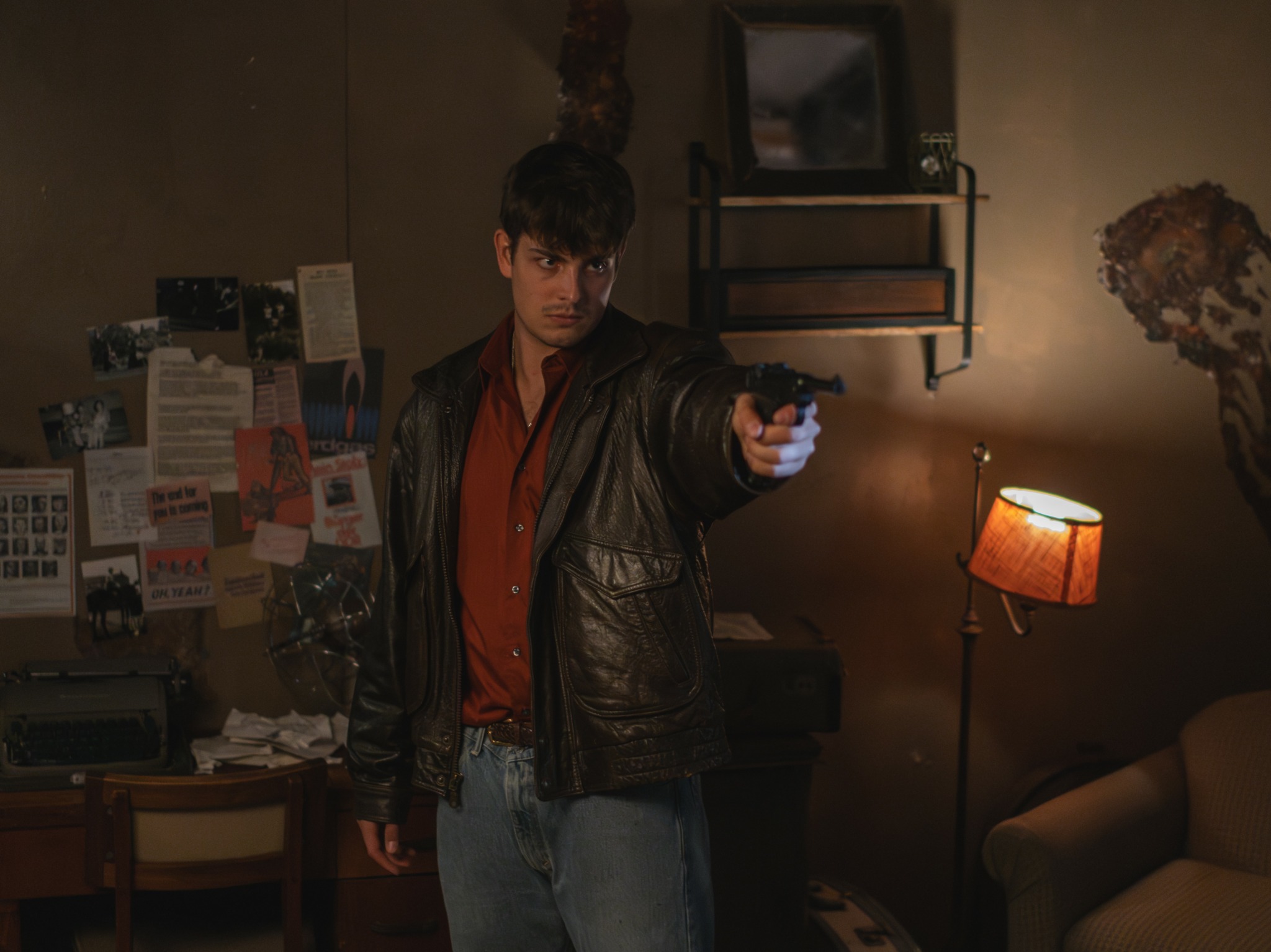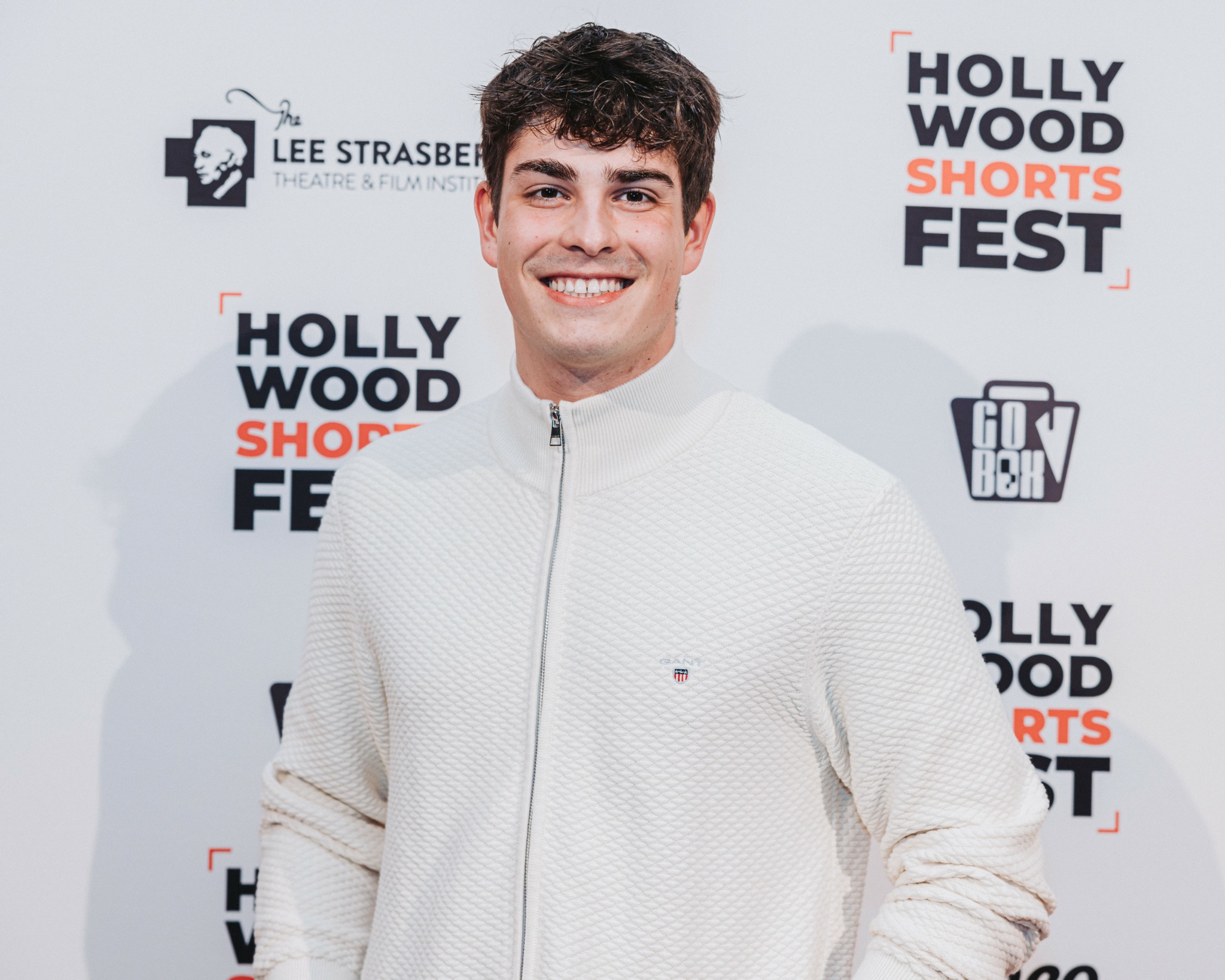We recently connected with Maximilian Schulze and have shared our conversation below.
Maximilian , thanks for taking the time to share your stories with us today Can you talk to us about a project that’s meant a lot to you?
The most meaningful project I’ve worked on so far is a short film called Das Sichere Haus (translation: The Safe House), which I filmed in November 2024. There are many reasons why this is my favorite project, but primarily it’s because of the artistic freedom the director gave us when developing our characters. I love it when a director just sits down with you and “talks character”. Elia Kazan always did this with his actors, and it really engages me in those first essential steps. Linus Engelhardt, the director, did exactly that. Before our first rehearsal, we explored their motivations, secrets, dreams, flaws, and hopes. That stage of the process is one of my favorites. For me, it’s what makes me “come alive.” Linus gave us almost complete freedom, which felt magical.
The second reason is the subject matter—it was set during the Cold War in Germany, a historical period I find incredibly intriguing. There are so many powerful stories from that era that deserve to be told, and as someone from Germany, I felt a personal connection to the material. In this one particularly, we play three members of the radical RAF group, hiding in a safe house while tensions and riots rise on the streets. One of us, however, is a traitor, and the story unravels as we discover who it is. The script itself felt very Tarantino-esque, as the entire plot unfolds in that one room. It almost felt like performing in a stage play.
The set design and costumes by Mattie Wellnitz and Lilli McGuire were also outstanding. They did extensive research to create a realistic 1977 “safe house” in Frankfurt. Everything felt old, vintage, and slightly decayed, which really enhanced the immersive atmosphere. Putting on the costume, especially the heavy vintage leather jacket my character wore, was like flipping a switch—I instantly felt like him.
Finally, it was the people. Everyone involved in the project was so immersed and dedicated, which really elevated the entire experience. Every single person, from the cast to the crew, gave their all, and that level of commitment truly showed in the final result. My co-actors, Johanna Thur and Andrea Martina, were outstanding and made the “moment to moment” work so much more fun, as we could just connect and flow.
Currently, the short is in its festival run, and so far, it has won an award for Best Thriller at the Berlin Indie Film Festival.
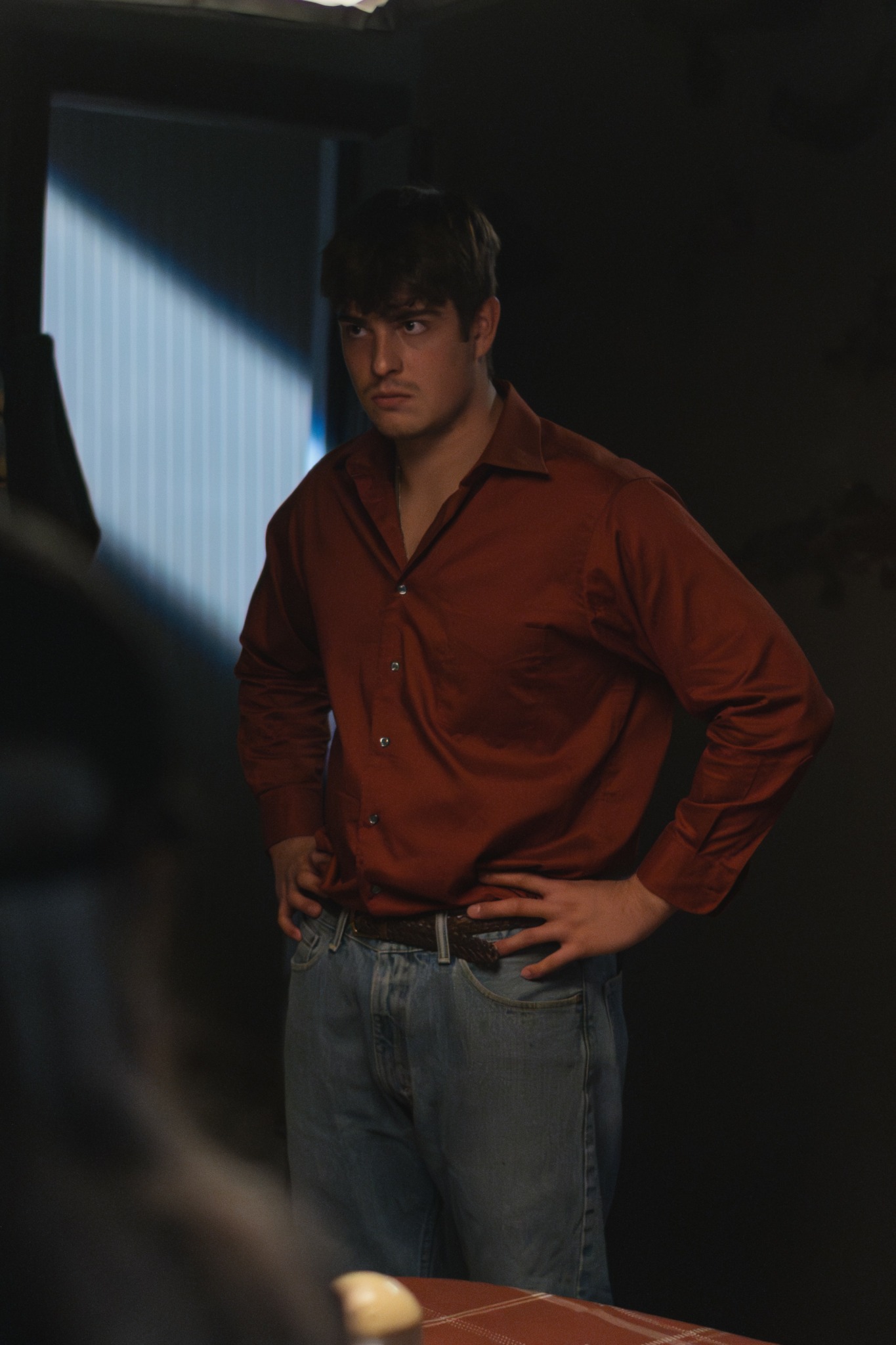
Awesome – so before we get into the rest of our questions, can you briefly introduce yourself to our readers.
I consider myself a storyteller, though the precise term would be “Actor.” I am also a Writer.
I was born in Slovakia, where I spent the first ten years of my life. My mother is Slovak, and my father was German—they met while he was working in Slovakia. Over the years, we lived in several places, including Germany, Belgium, and even China for four years. After returning to Germany, I finished high school and then moved to LA on my own to pursue my passion for acting.
I was accepted into the AOS degree program at The Lee Strasberg Theatre and Film Institute, where I graduated with a degree in acting in July 2023. Lee Strasberg, a pioneer of acting and the founder of “Method Acting,” brought this technique to the US, adapting it from Konstantin Stanislavsky’s work at the Moscow Art Theatre. Strasberg later taught at the Actors Studio, where he worked with many legendary artists and creatives.
Through studying the Method, I uncovered parts of myself I hadn’t previously explored. The technique requires you to draw from personal experiences and emotions, allowing you to connect deeply with the character and bring them to life in an authentic way.
What I love most about this acting technique is the deep understanding one develops of the human psyche and its motivations. Why does a person act the way they do? Where does this behavior come from? I try to approach every character differently—understanding their background, motivations, fears, inner wounds, and dreams. Yet, my way of connecting to them largely remains the same. I personalize their circumstances with mine and create their secrets and authentic nuances. The most exciting part of being an actor is exploring the complexities of human behavior, understanding it, and expressing it. That’s why I love storytelling!
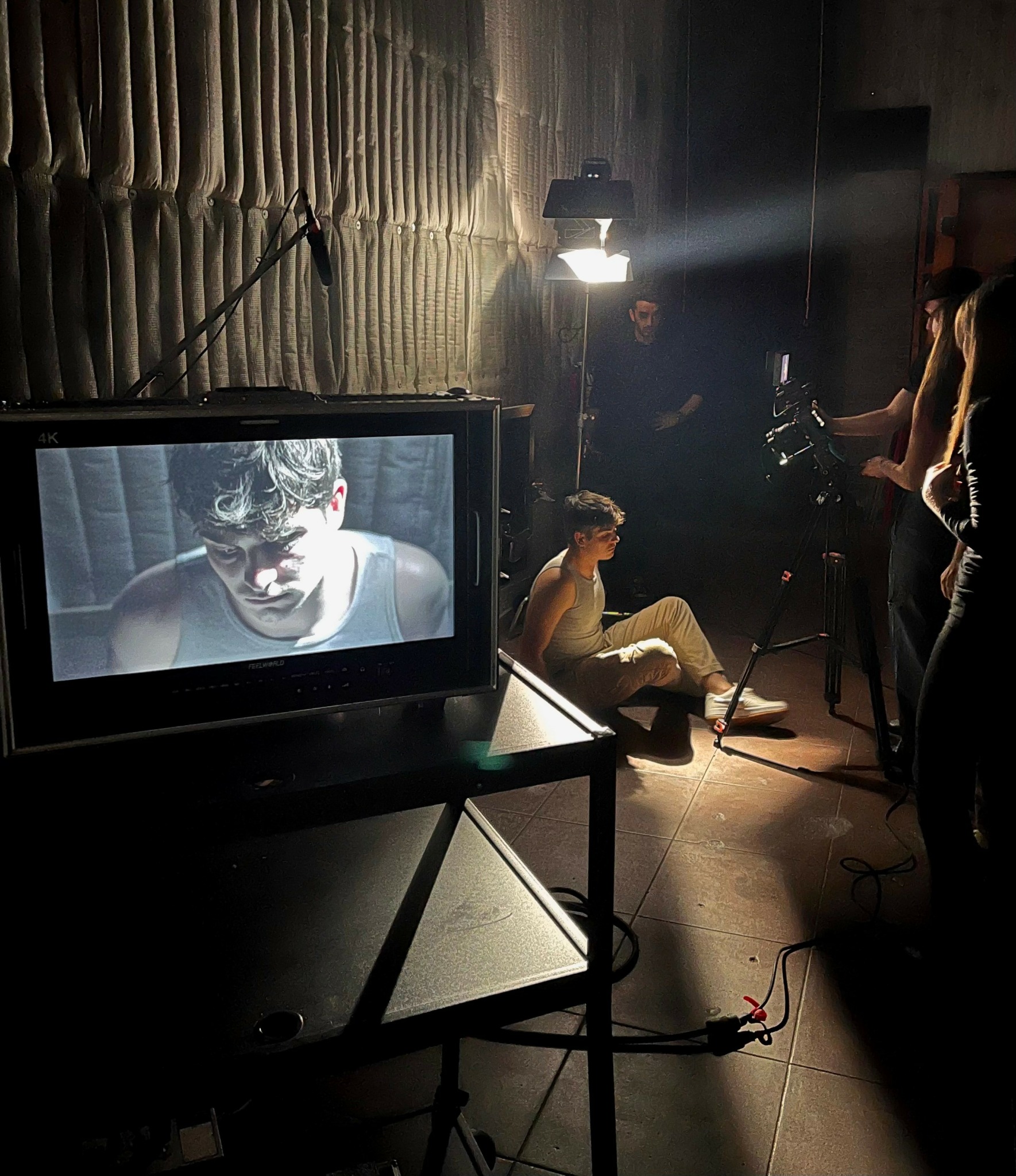
What do you find most rewarding about being a creative?
What I find most rewarding about being an artist is that I get to create from within myself—drawing from my own creativity, my own experiences, feelings, and inner resources. I take something personal and transform it into something completely different. For example, when I create a character from my inner world, I then get the chance to express myself through them, to behave like them. This then becomes essential to the story being told, as it gets filmed, and then retold to an audience. In the best case, that audience becomes engaged—whether they feel emotional, intrigued, or inspired. And just the idea that I’ve created that chain reaction and that result from my own resources and my own creativity is just so cool to me. Plus, let’s not forget that this whole process is just so much fun! Doing all these things, behaving and creating.
As humans, we’re natural explorers. We love to explore, and in order to create, we have to do just that. When I approach a role, I explore the script, looking for clues, hints, for anything that motivates my original thoughts or my ideas. Good writing pulls you into that journey, making the entire creative process even more engaging and fulfilling.
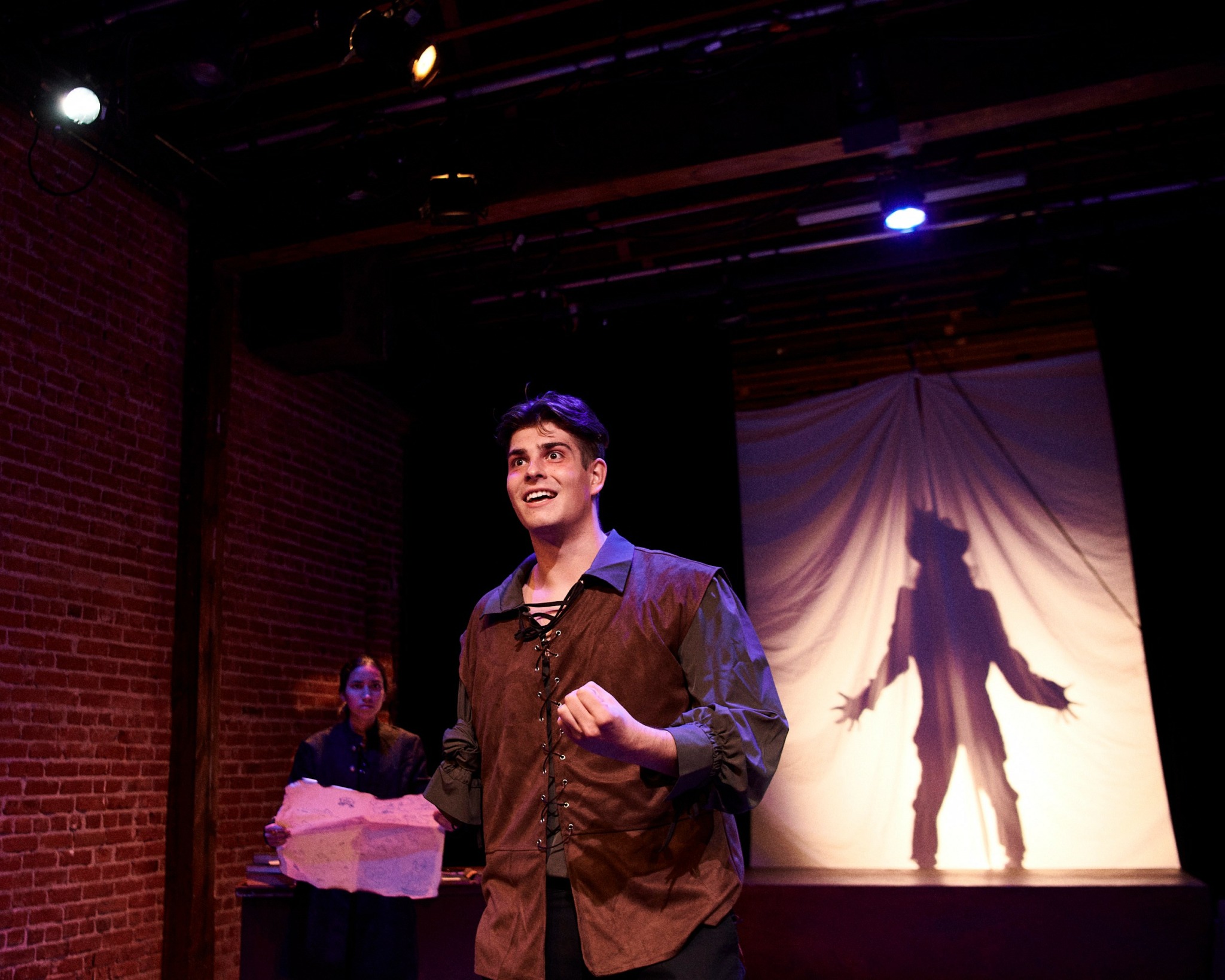
What’s a lesson you had to unlearn and what’s the backstory?
More of a “way of thinking” than a lesson, something I had to unlearn was believing that there’s a specific way or formula to acting, where everything should be done logically. “Okay, I do this, then I do that, and that’s my result.” But in acting, there is no strict logic. No equation. My teacher used to say, “Method Acting is like 2+2 is Tuesday,” and I think that sums it up pretty accurately. It took me a while to approach the work in a more exploratory and experimental way. There isn’t always a clear answer, and you want to live in the questions. That’s what keeps you engaged. Sure, you should have the basics like character history or scene elements/circumstances figured out, but beyond that, it’s about always asking more questions, always digging deeper.
And I keep learning how to do that. By no means do I have it all figured out. There are days where I fall back into the thinking patterns I had three years ago, but I have to stop myself in those moments. And then you’ve got to do something completely different. Read and analyze the scene backwards. See what line or action preceded the line before. But don’t go at this logically—there is only your instinct and your creativity.
Contact Info:
- Website: https://msha.ke/maximilianschulze.com
- Instagram: https://www.instagram.com/max.sml_?igsh=OGQ5ZDc2ODk2ZA%3D%3D&utm_source=qr
- Youtube: https://youtu.be/4yeiot9_6VA?si=PGaG1qb2PFCYzekU
- Other: IMDB: https://www.imdb.com/name/nm15005132/?ref_=ext_shr_lnk
Email: [email protected]

